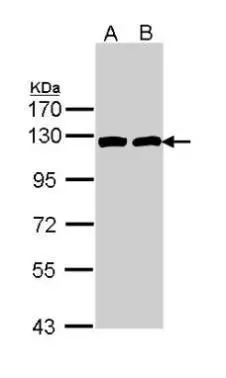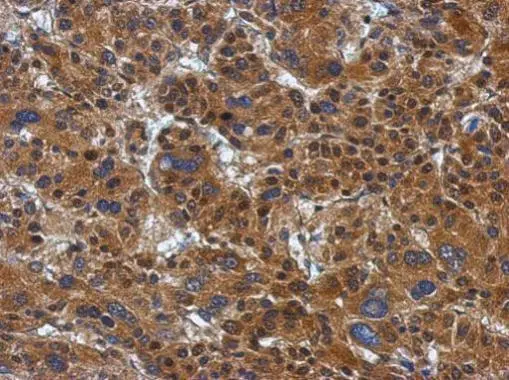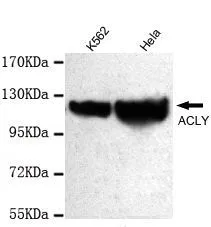
WB analysis of K562 and HeLa lysates using ATP-Citrate Lyase antibody at a dilution of 1:1,000.
ATP citrate lyase antibody [3D9-E9-H8]
GTX49218
ApplicationsFlow Cytometry, ImmunoFluorescence, Western Blot, ImmunoCytoChemistry
Product group Antibodies
ReactivityHuman
TargetACLY
Overview
- SupplierGeneTex
- Product NameATP citrate lyase antibody [3D9-E9-H8]
- Delivery Days Customer9
- ApplicationsFlow Cytometry, ImmunoFluorescence, Western Blot, ImmunoCytoChemistry
- CertificationResearch Use Only
- ClonalityMonoclonal
- Clone ID3D9-E9-H8
- ConjugateUnconjugated
- Gene ID47
- Target nameACLY
- Target descriptionATP citrate lyase
- Target synonymsACL, ATPCL, CLATP, ATP-citrate synthase, ATP-citrate (pro-S-)-lyase, citrate cleavage enzyme
- HostMouse
- IsotypeIgG2a
- Protein IDP53396
- Protein NameATP-citrate synthase
- Scientific DescriptionATP citrate lyase is the primary enzyme responsible for the synthesis of cytosolic acetyl-CoA in many tissues. The enzyme is a tetramer (relative molecular weight approximately 440,000) of apparently identical subunits. It catalyzes the formation of acetyl-CoA and oxaloacetate from citrate and CoA with a concomitant hydrolysis of ATP to ADP and phosphate. The product, acetyl-CoA, serves several important biosynthetic pathways, including lipogenesis and cholesterogenesis. In nervous tissue, ATP citrate-lyase may be involved in the biosynthesis of acetylcholine. Multiple transcript variants encoding distinct isoforms have been identified for this gene. [provided by RefSeq, Dec 2014]
- ReactivityHuman
- Storage Instruction-20°C or -80°C,2°C to 8°C
- UNSPSC41116161

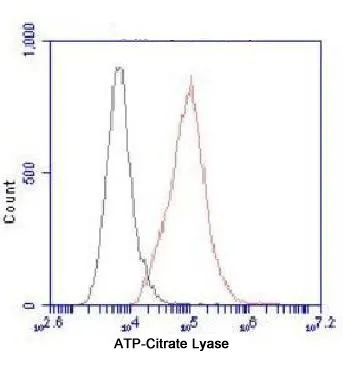
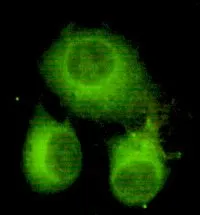
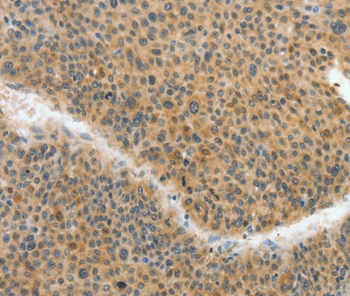




![IHC-P analysis of colon adenocarcinoma tissue using GTX84967 ATP citrate lyase antibody [3G8]. Antigen retrieval : Heat-induced epitope retrieval by 10mM citrate buffer, pH6.0, 100oC for 10min. Dilution : 1:50](https://www.genetex.com/upload/website/prouct_img/normal/GTX84967/GTX84967_3302_IHC-P_w_23061420_547.webp)

